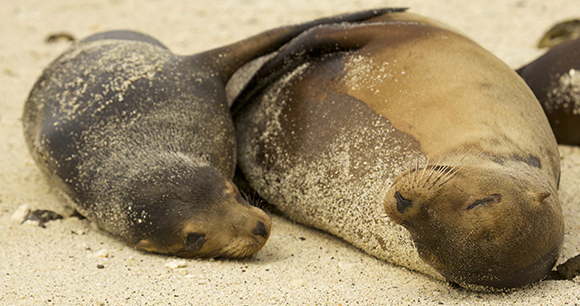
Washington, DC—The Animal Welfare Institute (AWI) is deeply troubled that the US House of Representatives voted yesterday to pass H.R. 2083, the Endangered Salmon and Fisheries Predation Prevention Act. This legislation would amend the Marine Mammal Protection Act (MMPA), ushering in the killing of nearly 1,000 sea lions a year—a move in stark contrast to the continued protections for marine mammals that Americans wish to see.
During the course of debate, the original text of H.R. 2083 was amended and altered; as a result, the bad bill became worse, now allowing for the issuance of permits to kill sea lions in a broader geographic region and for a longer period of time. As passed, H.R. 2083 is identical to Senate bill S. 3119, which that chamber will likely vote on this legislative session. In response, AWI representatives had this to say:
“The MMPA currently contains a narrow exemption allowing states to apply for permits to kill ‘individually identifiable’ sea lions who are seen eating salmon from ESA-listed runs,” said Nancy Blaney, AWI director of government affairs. “Officials from the state governments of Washington, Oregon and Idaho can kill up to 92 sea lions each year under these permits, but they have never reached their quotas. H.R. 2083—which is more aptly called the ‘Killing Sea Lions Act’—allows for a tenfold increase in the number of sea lion killings, even though the current quotas established by these permits have never been met. Under this bill, other stakeholders would be able to kill sea lions as well, and they may (and most likely will) shoot these animals—possibly in the water, which reduces accuracy and could lead to great suffering by wounded animals, along with an influx of sea lion carcasses floating up on shore.”
“Shockingly, H.R. 2083 contains little oversight for this increase in sea lion killing,” continued Blaney. “Current law restricts these permits to a one-year time period, while H.R. 2083 expands that to five years. This increased duration reduces oversight of the effects these programs might have on salmon recovery. Unlike other wildlife management programs, this bill offers no metrics to measure the success or failure of this program.”
“H.R. 2083 is not a viable recovery plan for the salmon stocks in question,” said Dr. Naomi Rose, AWI marine mammal scientist. “Rather than ensuring that the sea lions being killed are, in fact, the problem animals, H.R. 2083 allows for the indiscriminate killing of sea lions throughout the Columbia River and its tributaries. This misguided and indefensible bill sets a dangerous precedent for marine mammals and their management in the US and fails to tackle the greater and more pressing issue: Human-caused threats to endangered salmon, such as habitat degradation and commercial fishing. AWI understands the regional, cultural and economic importance of this issue, but killing more sea lions simply for the ‘crime’ of being sea lions will not result in achieving the goal we would all like to see—the recovery of these salmon populations.”
“Recent polling shows that Americans support protecting marine mammals from harm,” continued Rose, “which is another reason we are so disappointed by both the House and Senate bills.”
Margie Fishman, (202) 446-2128, [email protected]